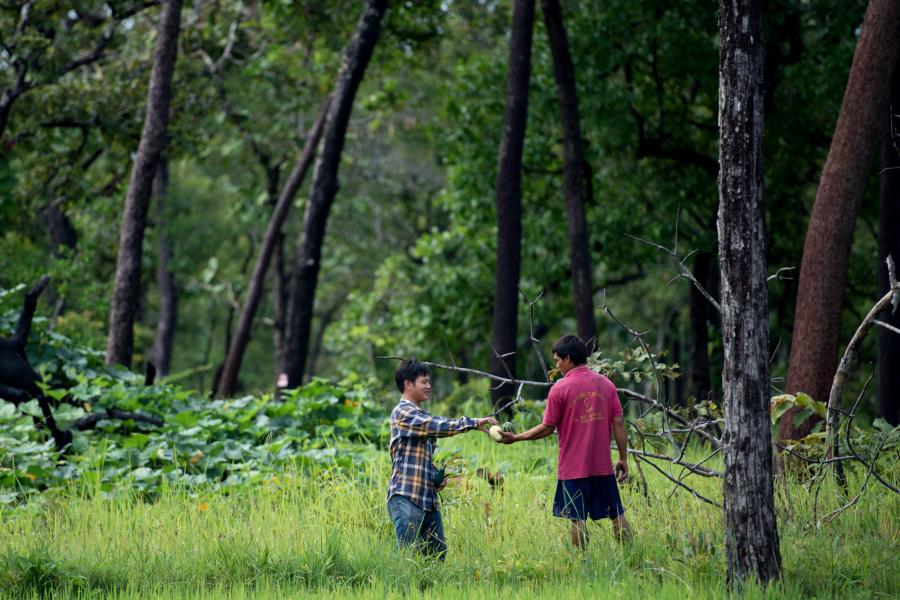What Does the International Climate Conference COP 23 Mean for Lao PDR?
11 ທັນວາ 2017
- A delegation from Lao PDR participated in the Conference of Parties to the United Nations Framework Convention on Climate Change (COP23), held in Germany in November. Lao PDR’s delegation took part in negotiations on implementing the Paris Agreement and to present the country’s own implementation progress in three side events, discussing issues of circular economy, South-South cooperation and Nationally Determined Contributions.

Do you remember the glossy images of high-level leaders joining hands to demonstrate unity and partnership over the Paris Climate Agreement, reached two years ago at the Climate Conference COP21? The main headline was that the agreement was to put a stop to increasing global temperatures, in order to contain them at a level well below two degrees as compared to pre-industrial times.
This year’s climate conference revolved around the follow-up discussions on how to reach this ambitious goal, bringing different actors to the table and agreeing on details, such as how to measure emissions in a unified manner, across the globe. A large part of the discussions focused on how to finance the implementation of the agreement.
The delegation of Lao PDR, headed by H.E. Ms. Bounkham Vorachit, Vice Minister of Natural Resources and Environment, participated in the negotiations at the conference.
“We are working to manage our natural resources and environment according to green-growth and sustainable development principles, in order to become a country that is resilient to disasters and to the effects of climate change,” said Ms. Bounkham, addressing the high-level plenary in Bonn.
Lao PDR is on track regarding its pathway to implement the Paris Agreement. As the first country in ASEAN to ratify the Paris Agreement by passing a national law on its so-called Intended Nationally Determined Contribution, Lao PDR is set to reduce its greenhouse gas emissions, while becoming more resilient to negative impacts from climate change. Currently, Lao PDR’s contribution to global greenhouse gas emissions is negligible (1.77 tons of CO2 per person in 2013, compared to 8.49 tons in China or 11 tons in the host-country Germany).
Forested areas contribute to the absorption of greenhouse gasses, and Lao PDR is determined to use them as such: “We are determined to continue our efforts to increase our forest cover to 70% by 2020, to increase the resilience of our agriculture and to restore and conserve the services of our valuable ecosystems,” Ms. Bounkham said.
Lao PDR is planning to increase its share of renewable energy to 30% of its consumption by 2025 and enhance public transportation, using biofuels. Climate action and development should ideally walk hand in hand, and the country has plans to focus on electrification of rural areas to offset energy generation from combustion of fossil fuels, as well as to improve the road network to decrease the number of kilometers travelled.
These plans need international support. At COP 23, UNDP launched its new global support programme to help countries dive deeper into the implementation of their contributions to the climate change agenda, including integrated governance, climate finance and private sector engagement. UNDP continues to support Lao PDR in achieving its climate change agenda and Lao PDR will be one of the participating countries in this global initiative.




